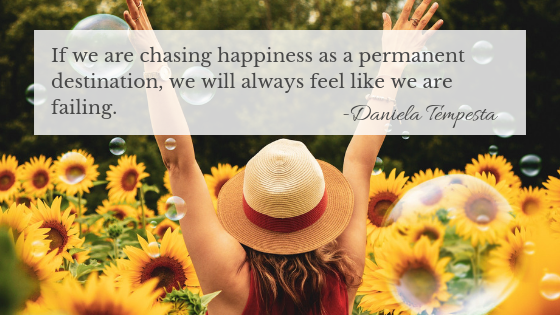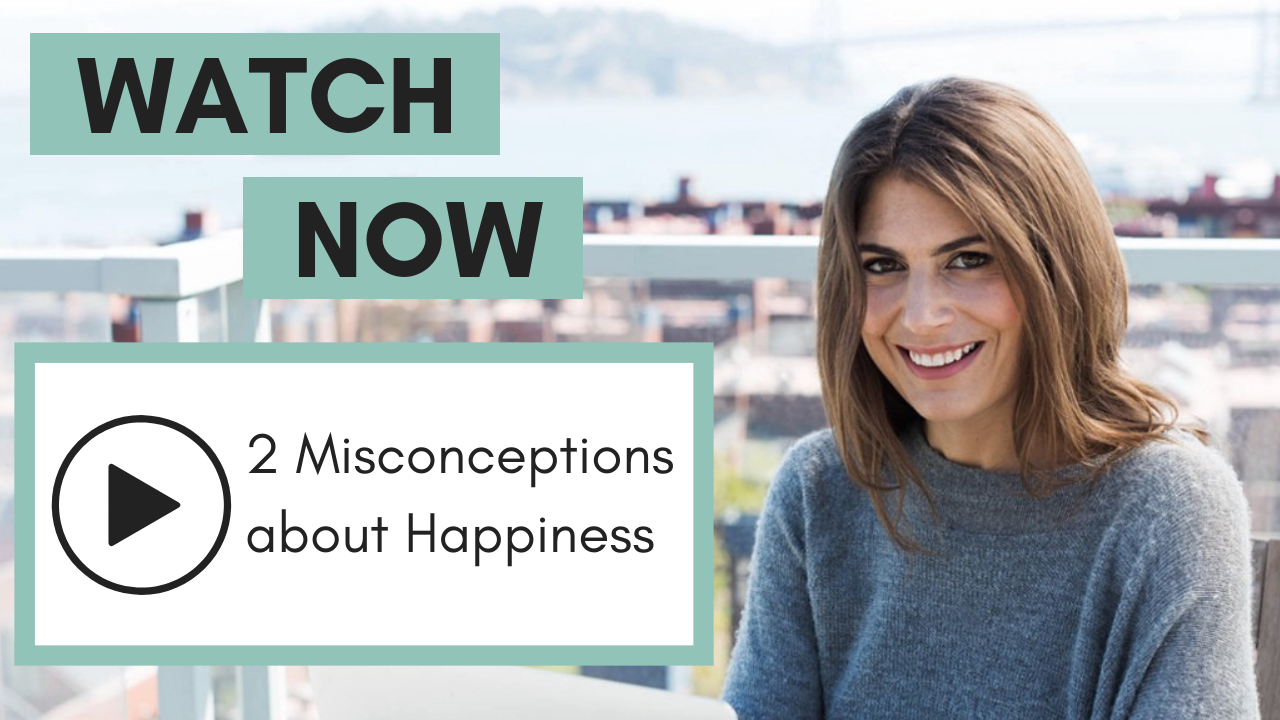Happiness is something we all chase. There are entire industries built around promising you happiness– in books, diets, 30-day programs, etc. Yet, for most of us, it still feels just out of reach.
There are many misconceptions about happiness that actually interfere with our ability to be happy, and I’d like to address a few of them.
Misconception 1: Happiness is a permanent state that can be achieved.
Have you ever noticed that sometimes it feels like you have happiness in your grip, but other times it feels too slippery to hold on to? That is because happiness is not a permanent state of being. People often talk about happiness as if it’s a destination at which you arrive. The idea being, once we “attain happiness” it’s a place we’ll get to live forever more.
But happiness is not a destination. More often than not, our lives are punctuated by moments of happiness. It is something we experience, not somewhere we live all the time. The good news is that there are things we can do to try to increase our experiences of happiness, but they will always be that, an experience. If we are chasing happiness as a constant state, we will always feel like we are failing, and that most certainly will not help with our mood.

Misconception 2: I’ll be happy when….
So frequently the conversation in my office goes something like this: “If my husband would just stop doing ____ than I could finally be happy,” or “I can’t be happy until I get that job,” or “I’ll be happy once _______ situation changes.”
In all of these situations, the ability to be happy is placed outside of ourselves. It’s as if someone else or something else holds the key to our happiness and we are just spectators.
While it’s tempting to place the burden of our happiness elsewhere, it’s also very disempowering! I like to remind clients that you can’t outsource an inside job. Happiness is an inside job. When we take responsibility for our own happiness, we are empowered because we have taken charge rather than remain a helpless bystander.
Another thing happens when we outsource our happiness…our anxiety increases. The more we are dependent on something outside of ourselves, the more powerless and uncertain we feel, both of which are linked to increased feelings of anxiety.
Now that you are aware of these misconceptions, I hope you are able to cultivate more happiness.
Be well,
Daniela

What have you learned in your pursuit of happiness? You can use this form or comment on my Facebook to connect with me and share your experience.


